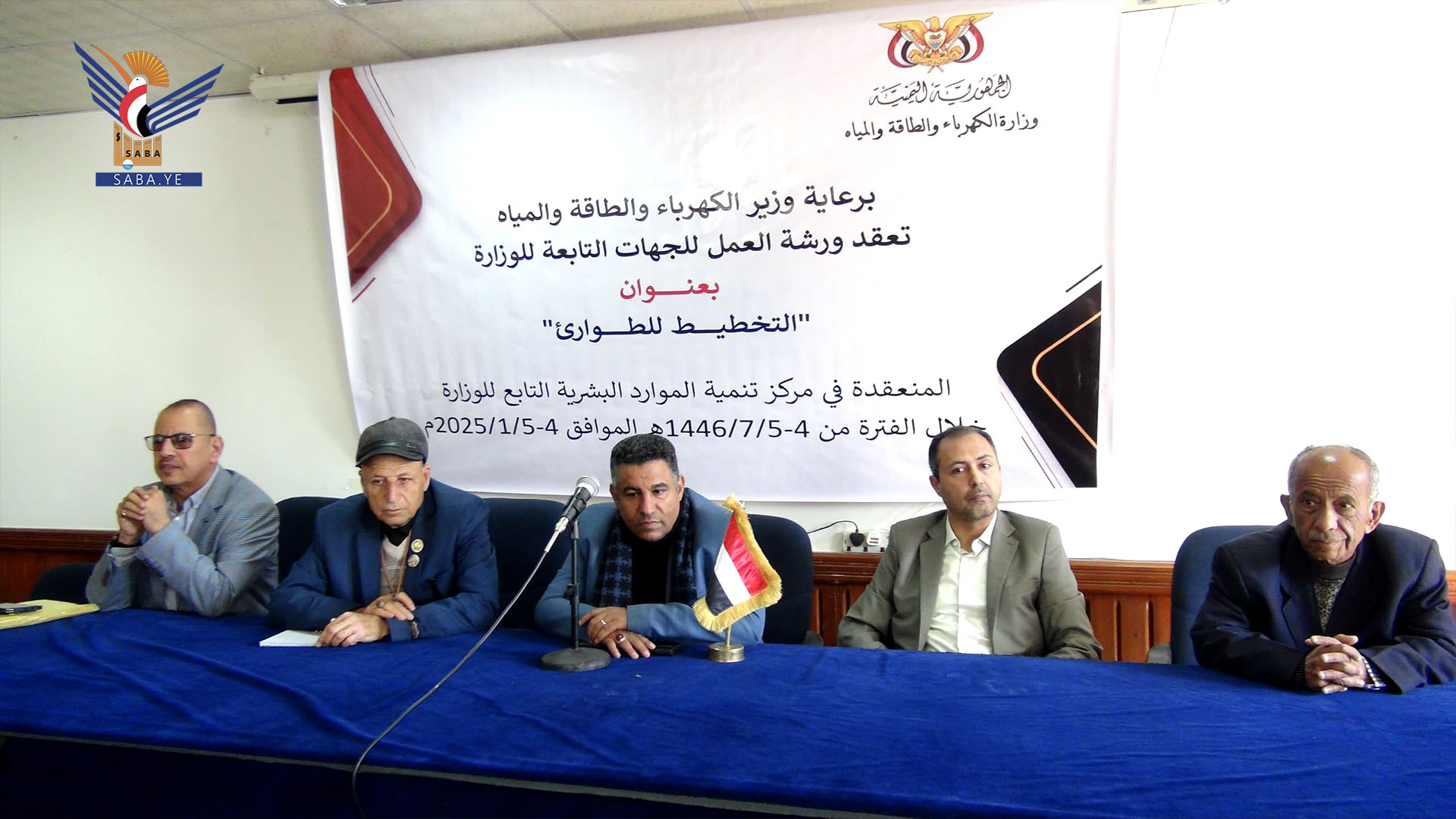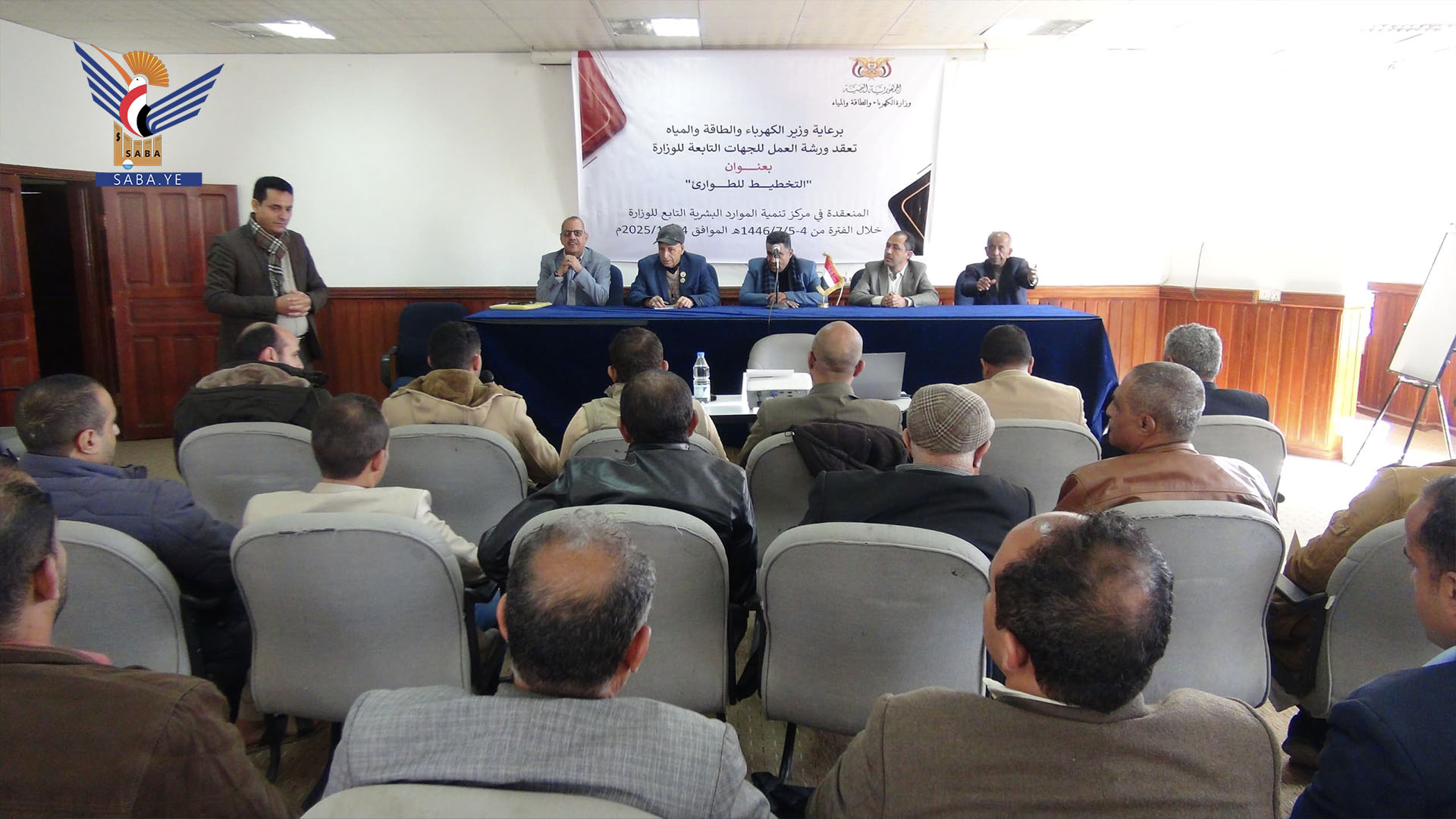
Sana'a - Saba:
A workshop on emergency planning began on Saturday at the Human Resources Development Center affiliated with the Ministry of Electricity, Energy and Water, organized by the ministry in coordination with the Planning Sector of the Prime Minister's Office.
The two-day workshop aims to enable 47 participants to identify the main risks within the state's emergency plan, prioritize them, and understand the methodology and mechanism that contribute to the continuity of implementing activities, reduce the negative consequences of risks, improve the decision-making process, make best use of resources, and increase the effectiveness of operational processes.
At the opening, Deputy Minister of Electricity, Energy and Water Adel Bader expressed keenness to prepare emergency plans and identify potential risks and threats, especially since the ministry and its affiliated entities are targeted by the Zionist-American-British enemy.
He pointed to the responsibility for the leadership of the ministry to prepare emergency plans to confront the Zionist-American aggression, noting that it is the Ministry of Electricity alone that has a pre-plan prepared before the general plans of some government agencies to confront emergencies.
Bader referred to the models that will be reviewed in the workshop by the Planning Sector of the Prime Minister's Office, expressing hope that the participants will benefit from the workshop's axes and come up with an integrated emergency plan in the electricity and water sectors to confront the repercussions of the Zionist-American aggression.
He expressed pride and appreciation for the sacrifices of the electricity and water sectors in confronting the aggression, and restoring electricity to service in a short period, praising the efforts of staff and engineers of the electricity sector who were able to restore the main electricity service to the public, which reflects the extent of the responsibility placed on everyone's shoulders in preparing to confront any emergency.
The Deputy Minister of Electricity and Water explained that staff of the electricity and water sectors are working in a team spirit to overcome the current challenges and develop an emergency plan to generate electricity by taking advantage of the generating stations of the local water and sanitation institutions in the governorates, as work underway to provide water and electricity services to the community.
The Director General of Water Sector Reform at the Ministry, Zaid Al-Kahlani, indicated that the workshop includes several axes, represented in defining the emergency plan, its objectives and importance, the general framework of the national emergency plan, an overview of the structure of managing response operations at the national level "setting roles and responsibilities", reviewing the general functions of the National Operations Room for Emergency Management, and the stages and levels of crisis and emergency management.
He stated that a detailed explanation will be provided for the 5-stage emergency planning process - preparation, analysis, development, financing, readiness, selection and review - and opening the door for discussion about the difficulties and reasons that prevented the agencies from developing a plan for institutional risks for the previous period.
Al-Kahlani expressed his hope that the participants will interact with the workshop axes to come up with well-thought-out practical steps and a final emergency plan that will be submitted at the end of this week to the ministry's leadership for approval.
At the opening of the workshop, which was attended by the Director General of Planning in the Water Sector at the Ministry, Wasama Al-Ariqi, Trainer Mutahhar Al-Shaari reviewed the axes included in the workshop regarding the plans and possible scenarios for confronting emergencies.
He talked about how to manage institutional risks and their connection to the risk management operations room at the national level through analyzing the probability, identifying the risk, analyzing the impact and severity of its occurrence, and then assessing the risk and using means to overcome it through containment, adaptation, avoidance or transfer.
